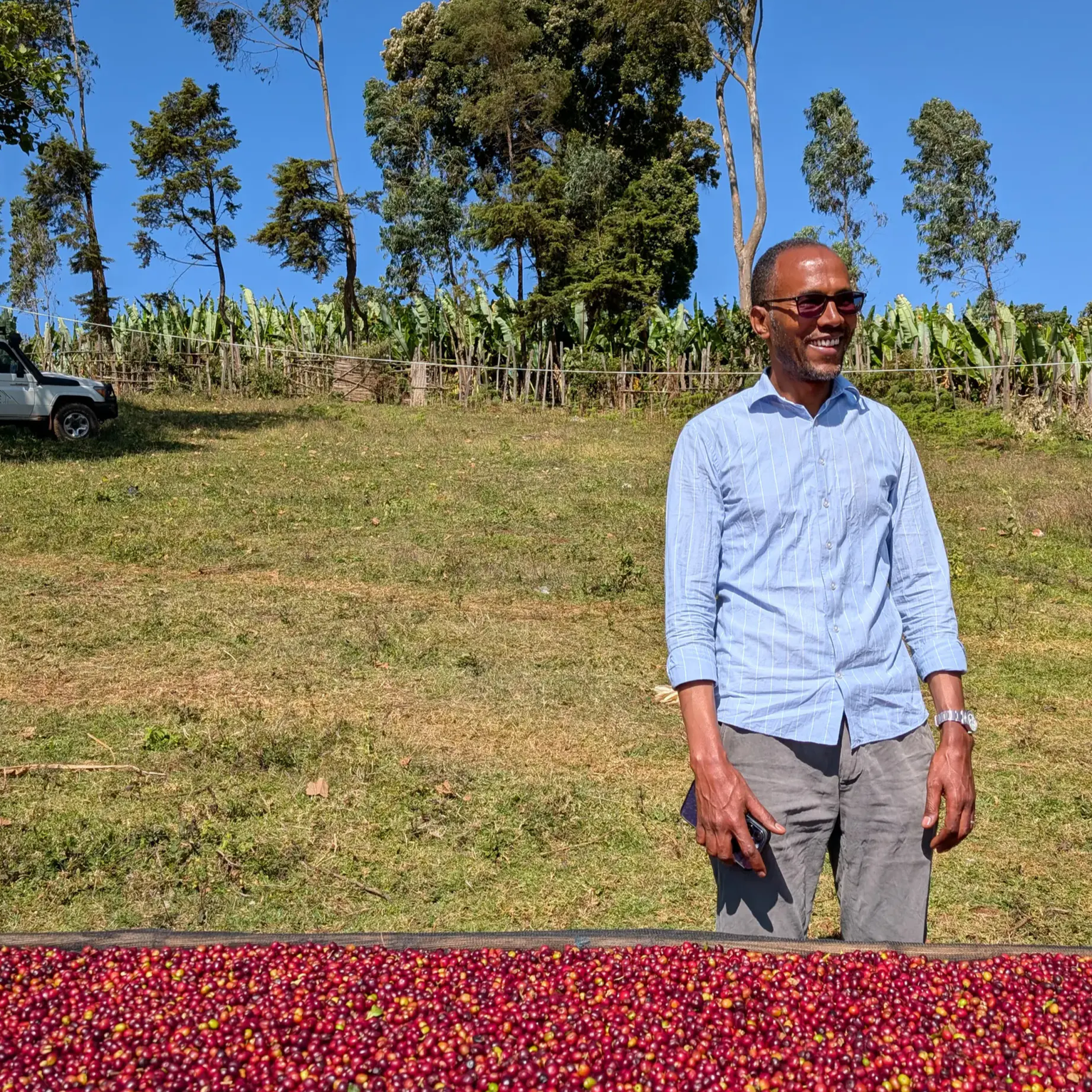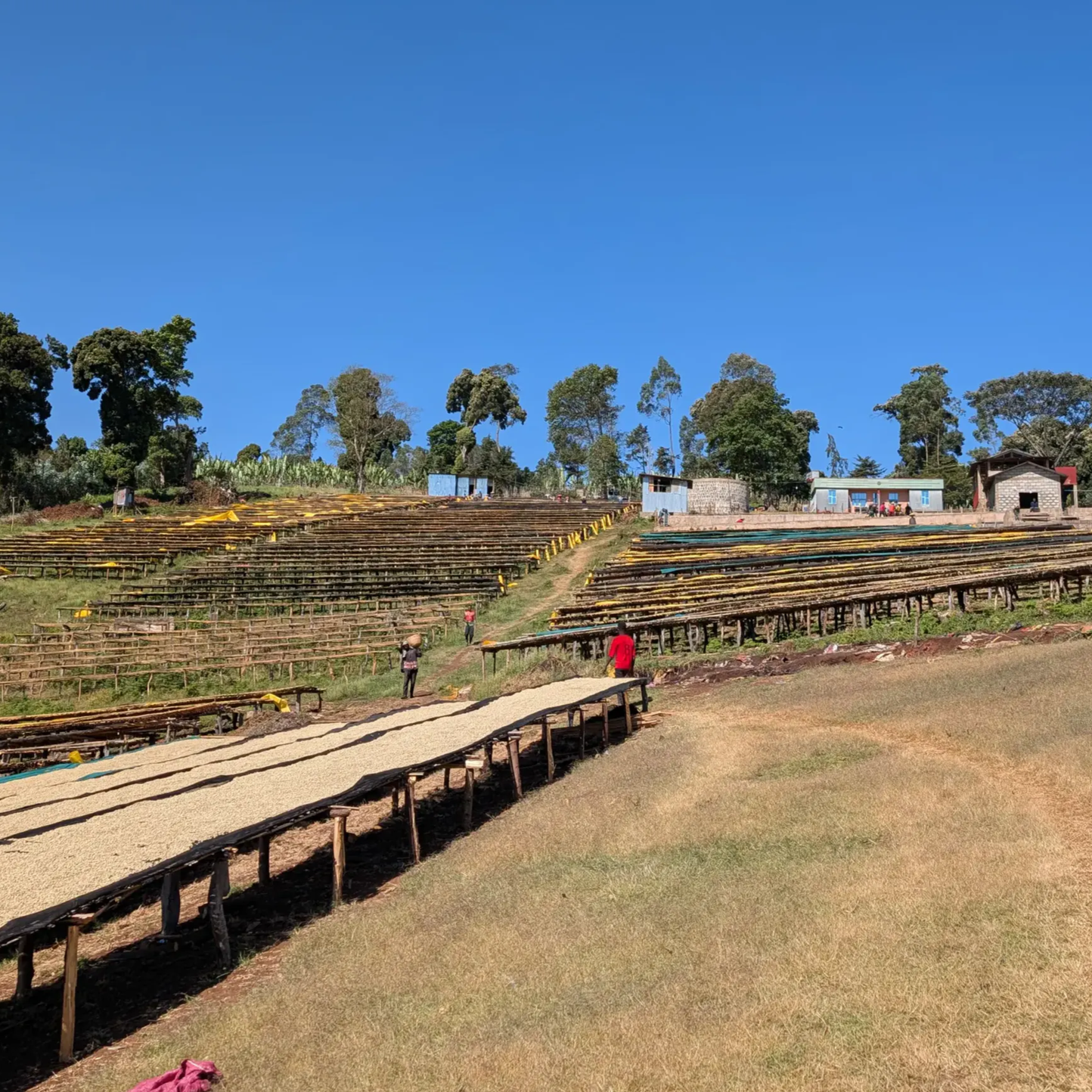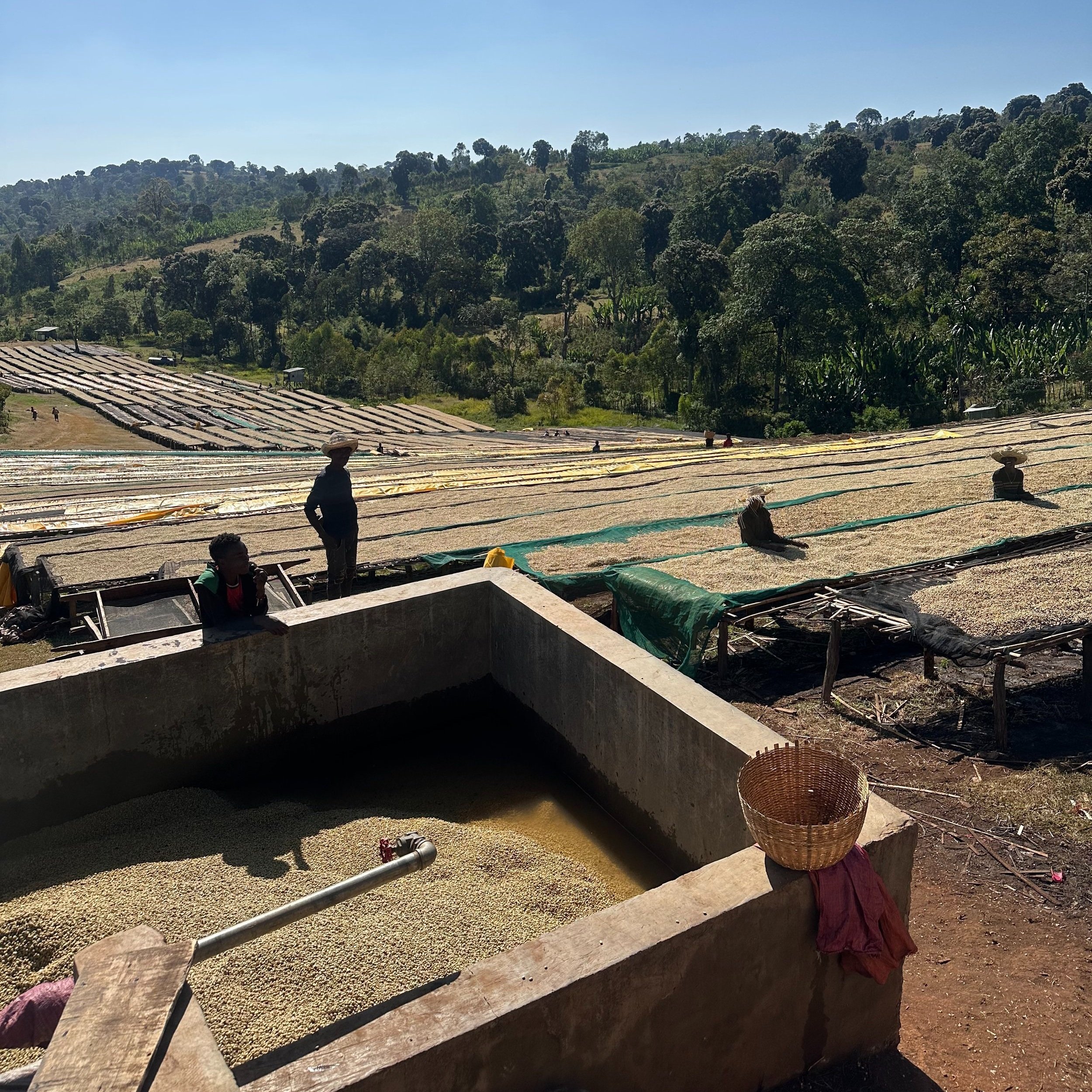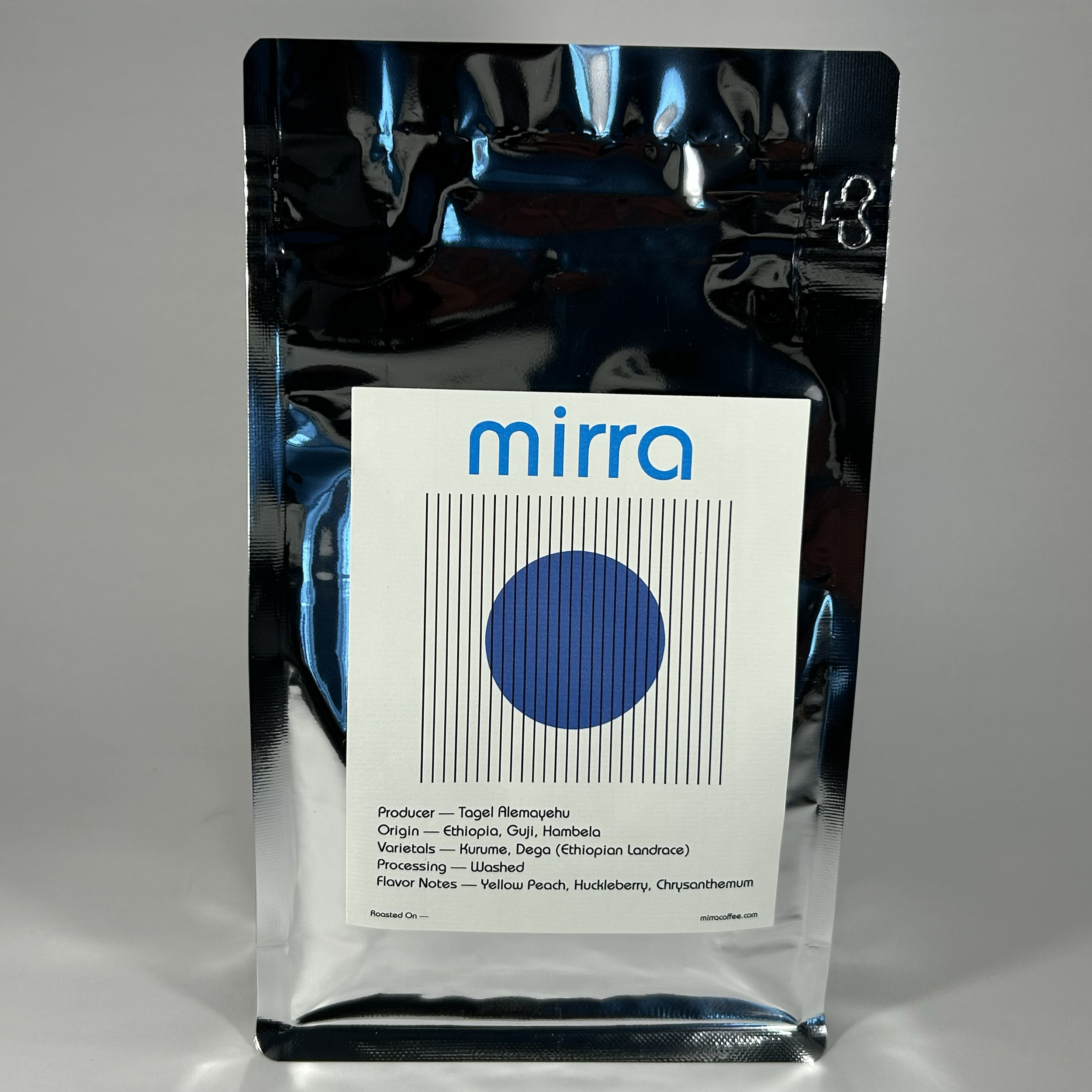 Image 1 of 3
Image 1 of 3

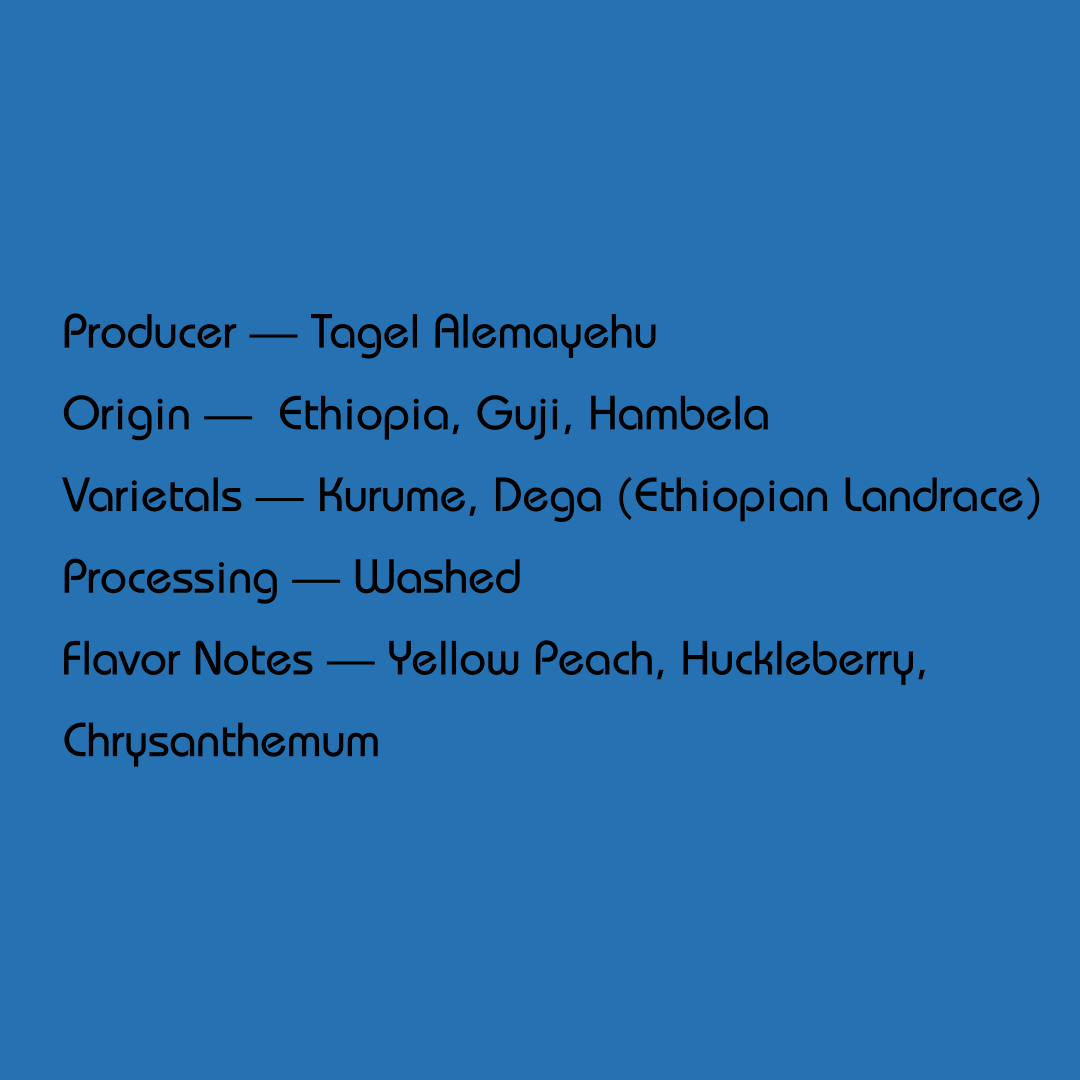 Image 2 of 3
Image 2 of 3

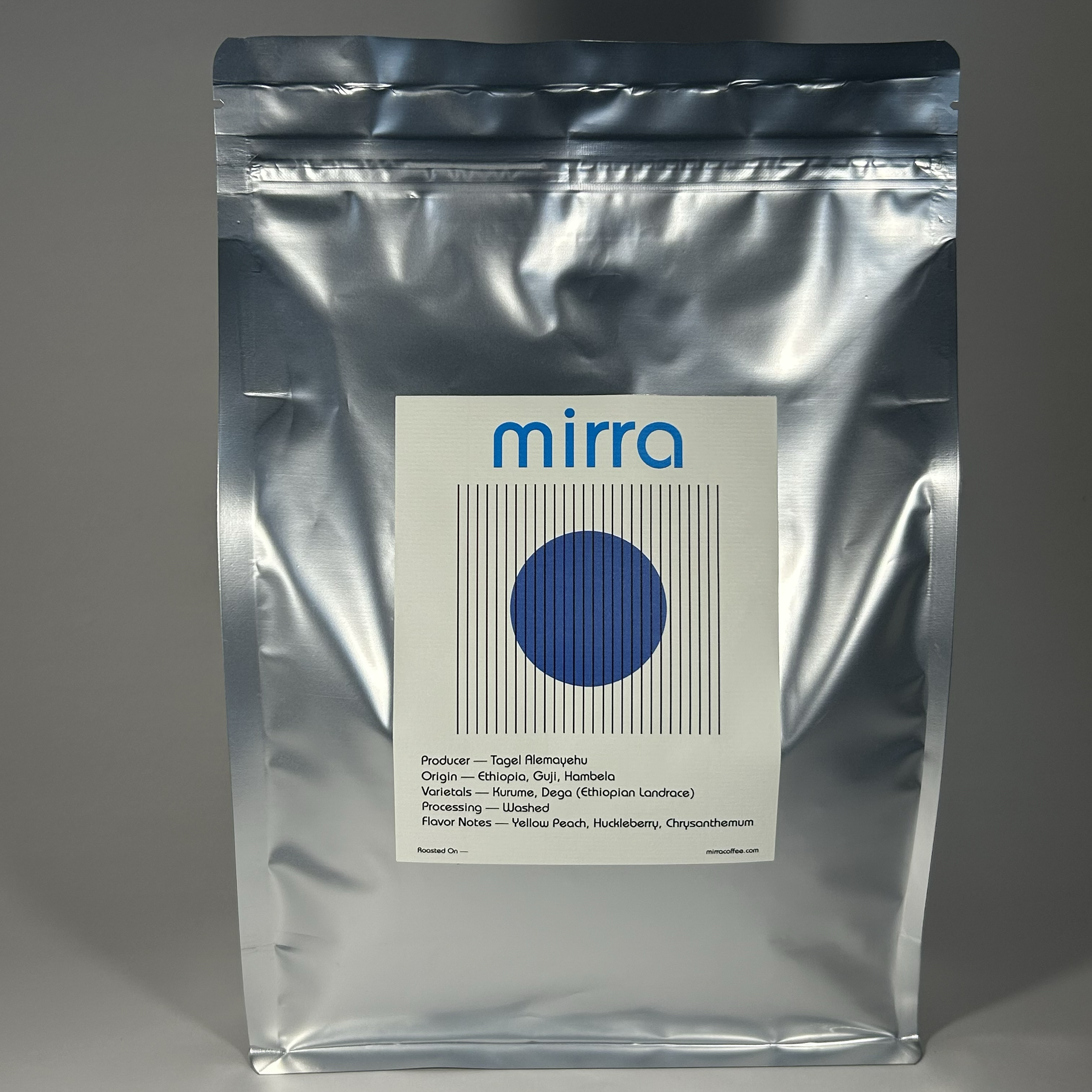 Image 3 of 3
Image 3 of 3




Ethiopia Tagel Alemayehu
The search for what will likely be our only Ethiopian offering from this season has been long and hard, but we believe that the remarkable quality of this lot from the incredibly talented young producer, Tagel Alemayehu of Hambela, was well worth both the effort to find it and the wait to get it in. We find exactly what we would want to find in an amazing washed Ethiopian lot, namely bountiful, juicy ripe yellow (think Georgia) peach, the essence of deep and dark huckleberry, and quite dainty aromatics, reminding us of chrysanthemum.
Tagel Alemayehu is the son of a coffee trader who, after a career in race car driving, decided to return to the more tranquil, slow-paced profession of farming coffee, following in his father’s footsteps. Beginning in 2004, he worked as the manager of a washing station in Guji, and used the experience gained in this position to found Olkai Coffee in 2018, which now owns and operates over a dozen washing stations throughout Sidama, Guji, and Bule Hora. These stations process Tagel’s own coffees, as well as those of thousands of other producers who live and cultivate coffee in the communities surrounding Olkai’s stations. Tagel grows his lots at 2.350 masl in the Guji region, and processes them at the Hambela station.
This offering is made up of the kurume and dega varietals, both of which are Ethiopian landrace varietals. Ethiopian landrace or heirloom refers to any varietal that is native to Ethiopia. Due to the coffee plant having originated in Ethiopia, and the long duration of its organic evolution and differentiation there, there is far more biodiversity in the genetics of Ethiopian coffee than in the coffee of any other producing country. This rich genetic heritage allows for a very high degree of quality and profile distinction in Ethiopian coffees, resulting in unparalleled complexity and sweetness. Additionally, due to this diversity and a general lack of research into the genetics of Ethiopian landraces, although a few varietals have been identified and named, most remain unnamed. The genetic landscape is so rich that it is often said that every town within the coffee growing regions of Ethiopia has its own distinct varietal.
All coffee is sold whole-bean to reduce oxidization, and increase the longevity of volatile organic compounds.
The search for what will likely be our only Ethiopian offering from this season has been long and hard, but we believe that the remarkable quality of this lot from the incredibly talented young producer, Tagel Alemayehu of Hambela, was well worth both the effort to find it and the wait to get it in. We find exactly what we would want to find in an amazing washed Ethiopian lot, namely bountiful, juicy ripe yellow (think Georgia) peach, the essence of deep and dark huckleberry, and quite dainty aromatics, reminding us of chrysanthemum.
Tagel Alemayehu is the son of a coffee trader who, after a career in race car driving, decided to return to the more tranquil, slow-paced profession of farming coffee, following in his father’s footsteps. Beginning in 2004, he worked as the manager of a washing station in Guji, and used the experience gained in this position to found Olkai Coffee in 2018, which now owns and operates over a dozen washing stations throughout Sidama, Guji, and Bule Hora. These stations process Tagel’s own coffees, as well as those of thousands of other producers who live and cultivate coffee in the communities surrounding Olkai’s stations. Tagel grows his lots at 2.350 masl in the Guji region, and processes them at the Hambela station.
This offering is made up of the kurume and dega varietals, both of which are Ethiopian landrace varietals. Ethiopian landrace or heirloom refers to any varietal that is native to Ethiopia. Due to the coffee plant having originated in Ethiopia, and the long duration of its organic evolution and differentiation there, there is far more biodiversity in the genetics of Ethiopian coffee than in the coffee of any other producing country. This rich genetic heritage allows for a very high degree of quality and profile distinction in Ethiopian coffees, resulting in unparalleled complexity and sweetness. Additionally, due to this diversity and a general lack of research into the genetics of Ethiopian landraces, although a few varietals have been identified and named, most remain unnamed. The genetic landscape is so rich that it is often said that every town within the coffee growing regions of Ethiopia has its own distinct varietal.
All coffee is sold whole-bean to reduce oxidization, and increase the longevity of volatile organic compounds.
